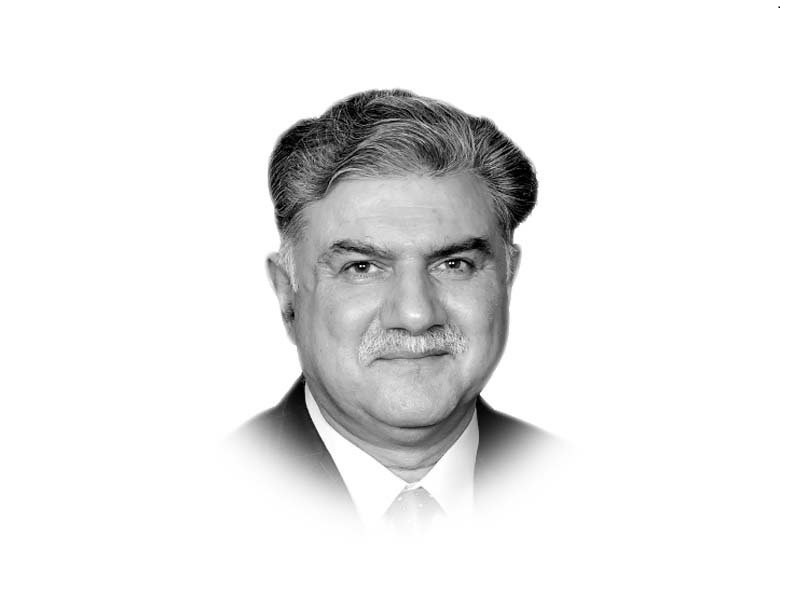
In December last year I wrote, ‘PTI government – an assessment’. Applying the yardsticks of perception, economic performance, governance and government-establishment relations, my assessment then (after PTI’s poor standing in KPK’s first round of local bodies’ elections) was that, left to its devices, PTI was doomed to an abysmal failure in the polls, if conducted then. That the ‘third option’ was not making the much-touted tabdeeli (change), and was ‘more of the same’.
It was highlighted that Pakistan does not have political leadership in requisite numbers to sustain three major political parties. Hence recycling of the tainted dynasts/etc remains a sad outcome. Therefore, the chokehold of political elite – ashhrafiyya – in a democratic dispensation, where capable human resource available, either has no material resources or no will to participate in the current political format. And that parties – PTI included – were hostage to electables, who do politics only to enhance personal financial and political clout.
That PTI was unable to field candidates even for local bodies; youth – its bulwark – was disillusioned; party was divided; stories of corruption by PTI cadre were rampant; higher leadership was not available to the party’s ranks and file; and Khan was a distant king in a faraway Islamabad.
People mostly were not happy with PTI’s economic management; handing over of Pakistan to predatory IMF/WB on a platter; and State Bank not remaining State Bank of Pakistan; inflation was sky-rocketing and dollar out of control.
Politically, most good work (reformed revenue collection, education and health sectors and police de-politicisation) by the PTI-led KPK government in the earlier tenure was being rolled back. ‘Protégé’ revenue collectors were back to their old ways, to ‘create wealth’; and tax collection was predatory like never before. And that other than the relative success of PTI’s corona strategy under NCOC, there was little to show for PTI’s demonstrated performance, hence the rising public discontent.
In the sensitive realm of civil-military relations, the PM had overreached into the military’s domain, through ill-advised insistence on retaining the then DG ISI. This proverbial last straw broke the back of ‘harmonious’ government-establishment relations. PTI higher echelons loudly gloated over the lack of choice with the military and IK’s inevitability.
So, if the ‘Combined Opposition’ had let IK complete his remaining term, he could have sunk deeper and deeper into the political morass of his own making, writing his own political obituary. One wonders why a seasoned opposition would step in to file a NCM against a government on the ventilator. Plausible explanations include; placing of the loyalists at critical places for the next elections; playing to the tune of global movers and shakers unhappy over IK’s self-claimed ‘independent’ foreign policy (therefore, the use of money and vulture-trading); and Miltablishment’s growing disaffection with IK, extension or no extension. Internal intrigues of Combined Opposition are also a probability…‘some’ parties wanting to divert blame on ‘others’ for non-delivery in the remaining term, as they assumed power. This combination resulted into political and constitutional coup, and the rest as they say, is history.
But that was then. Today IK’s is on a roll due to his ‘go to the people’ political strategy, set in motion by the huge jalsa in Islamabad on 27th March. This political masterstroke plus PTI’s resignations has resurrected IK’s political fortunes, pitting Street against the Legislature. His narrative, highlighting return of the convicted and corrupt back to power; interference/conspiracy of regime change; judicial over-reach; and military’s counterproductive ‘neutrality’ ring a bell among vast segments of political spectrum in Pakistan.
In the ‘event-dependent’ political culture of Pakistan (who would have thought Asif Zardari becoming a president if Benazir had not died), IK today is on top of his political popularity and most possibly would sweep the next general elections if conducted early and freely. PTI, the perceived underdog, is likely to sustain/augment this Generation Z-inspired wave of support that appears lasting. If global powers can change our regime for a pittance like 10 (some say 15) million dollars, making a mockery of our democracy and system...this is worrisome, very worrisome. And IK or no IK, people are standing up and speaking.
Like in the 1960s, when energy of the youth brought Ayub Khan down as Bhutto mobilised middle and upper middle class, one sees greater similarities but more energy in the present crisis. Because Pakistan’s youth bulge today is more aware, more organised; and this IT-savvy netizen cohort is tenaciously pro-IK even if not necessarily pro-PTI.
Therefore, the choice at the polls is stark. Electing a ‘rather corrupt (proven) but decidedly experienced/capable leadership’ or a ‘clean (unproven), somewhat experienced but incapable’ leadership. In the cited Op-ed, Miltablishment was advised to bet on the right horse; today that would also include reading the situation correctly, feeling the pulse (internally) and not to miscalculate. As there is no margin of error.
IK’s pro-Islamist/pro-Pakistani credentials, his tenacity against the meddlesome West, his charisma, and his personal integrity make him a great leader to be ‘used and utilised for the benefit of Pakistan’, once correctly packaged. Despite his glaring failings, silent majority still endears him for cited attributes, besides his ‘relative standing’ amongst ‘other’ available choices.
Being a student of ‘revolutions’, one sees signs, prerequisite for popular uprisings. There is massive public discontent directed at our political rot. Urban areas unlike rural hinterland would be the battleground of People-versus the State if the situation is not handled with sagacity and wisdom.
Military cannot remain aloof as a neutral bystander, as we all know. So, it is better to prepare and prepare well for foreseeable future and possible political chaos. And that calls for heeding not denying advice through strategic intelligence. Some ‘early’ pointers would include persuading Imran to become Rahbar-e-Tahreek (or president), leaving governance in capable ‘other’ hands. Because even after a heavy mandate, PTI cannot deliver in governance through its present lot of semi-experienced cadre and electables. Party to start looking for seasoned hands to run critical ministries and provinces like Punjab… completing its administrative division. Miltablishment needs to help staff him with visionary teams (there is no dearth).
The notion of ‘extension’ and other pretenses like becoming Chief of Defence Forces (CDF) be buried loudly and clearly. Constitution be amended fixing only one term for the service chiefs/others.
‘Extension (haq-talfi) is cursed’. Don’t we know it?







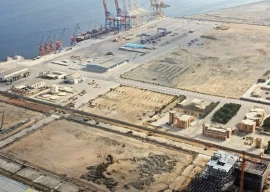
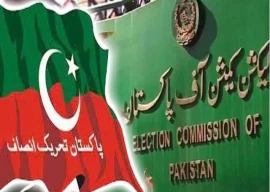
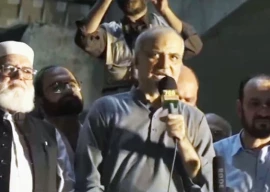
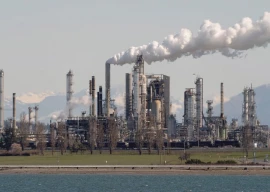
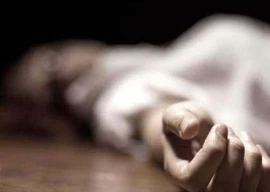



COMMENTS
Comments are moderated and generally will be posted if they are on-topic and not abusive.
For more information, please see our Comments FAQ